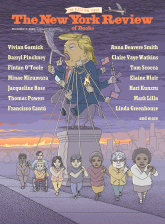On May 4, 1969, James Forman, the former executive secretary of SNCC, stormed the pulpit at Riverside Church in New York City in the middle of Sunday morning communion service and, with six aides at his side, started reading a list of demands for reparations from white churches and synagogues for their part in exploiting Black Americans for centuries. The organist loudly played the hymn “May Jesus Christ Be Praised” to drown out his words. The preaching minister, flanked by five other clergy, led the choir down the middle aisle and out of the sanctuary. Forman soon received a restraining order, and then burned it on the steps of the chancery of the Roman Catholic Archdiocese on Madison Avenue.
Forman’s demands were drawn from the “Black Manifesto,” which was originally prepared for the National Black Economic Development Conference in Detroit that April, and called for $500 million to be used for the establishment of a Southern land bank, four publishing industries, four futuristic television networks, a research center focused on the problems of Black people, a training center for the teaching of skills in community organization, television, radio, film, and photography, the organization of welfare recipients, a national Black labor strike and defense fund, a Black anti-defamation league, a Black university in the South, and cooperative businesses in the United States and Africa. The manifesto (first published in this magazine) listed twenty-four nominees to the steering committee: twenty-three men and one woman, Fannie Lou Hamer.
Forman’s intrusion into Sunday service was not unique, and the manifesto became a source of debate in particular in the Detroit church community, where an allied white radical group took over the main offices of the Presbyterian church, a Black group took over another church, and eight white housewives sat in at the office of the Bishop of the Episcopal church. But the church, at least on the left, is no longer a hotbed of activism and protest.
After the worldwide taking to the streets following the murder of George Floyd, the rapper Ice Cube started suggesting that Black folks should not cast a vote without asking “what’s in it for us.” This summer he put together a Contract with Black America, which calls for a much broader spectrum of reforms than the 1969 manifesto. Its thirteen demands include the adoption of a plan for “Neo-Reconstruction” to right past wrongs, the creation of baby bonds (originally proposed by Senator Cory Booker), bank lending reform, prison reform, and police reform. It also demands that the FCC require broadcast networks to devote 20 percent of aired content to Black producers, and it ends with a section that outlines Black responsibility:
As we begin to gain social and economic equality it is our duty to clean up ourselves and our community. This contract is a 2-way street. As we gain social and economic equality, we must begin to dissolve any bitterness in our hearts for past wrongs.
Yet he remains cautious about voting, and expresses reluctance about who will get his vote:
Both sides have contacted us, and what I see is, both sides understand that something big needs to be done. What I think the Biden campaign should really be scared of is, you know, Trump can actually do it, like—he can try to implement it before the elections.
On September 25, Trump unveiled his “Platinum Plan” for Black Americans at a live event in Atlanta. I say “live event,” but as I watched, it sounded to me that the applause, whoops, and hollers of the assembled were canned. He referred to his Platinum Plan as “a Contract with Black Americans.” Is he alluding to Ice Cube’s document? He called for making the KKK a terrorist group, and said he will make lynching a national hate crime. Kamala Harris, Tim Scott, and Cory Booker have already written an anti-lynching bill that still has not been passed by the Senate—this being one of many failed attempts at such legislation since 1901. It was stalled most recently by Rand Paul, who suggested revisions on the day of George Floyd’s first memorial service.
I don’t see anything posted at the time of this writing from Ice Cube in response to the Platinum Plan. But the economist Darrick Hamilton, who wrote the preface to the Contract with Black America, has Ice Cube’s ear. He needs to reiterate what he recently told Amy Goodman on Democracy Now. Invoking FDR’s famous instruction to progressive activists, “Make me do it,” Hamilton said about the need to address the wealth gap and other issues, “We will make Biden do it, but first and foremost, Donald Trump needs to get removed.”
The robust activism of 2020 will not stop after the election. In fact it must become stronger, regardless of who is in office. But first we have to storm the polls with the vigor of the 1969 dissenters, now heroes. Recently, I contacted James Forman’s son, James Forman Jr., the Pulitzer Prize–winning legal scholar, and asked if Mr. Forman Sr. voted. His response:
Advertisement
And yes, he did very much so. He was the first in line at the polls most election days.
Voting was still a radical act then.



